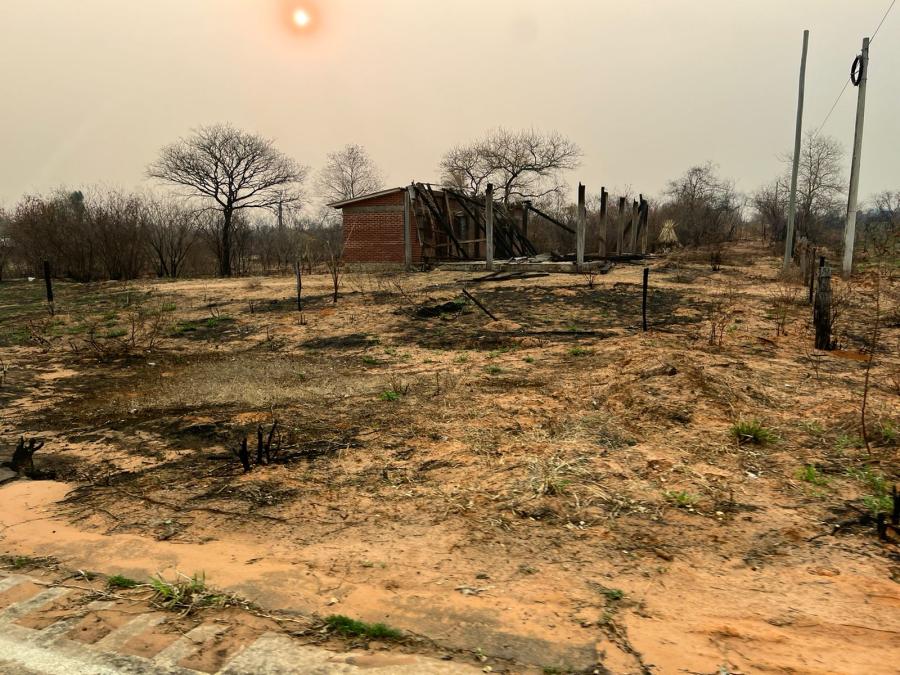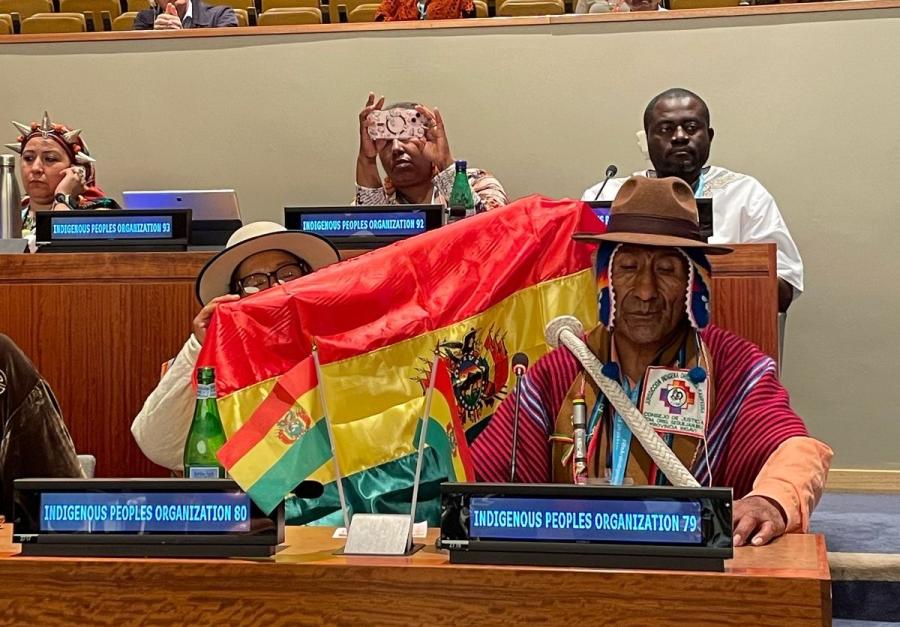For our people the coca leaf has been part of our culture for millennia. It has been used throughout the Andes by our ancestors since before recorded time. Our defense of the coca leaf is part of the defense of our very culture here in Bolivia. Coca is our natural medicine. Millions chew it to sustain themselves against the harsh conditions of the altiplano. It is used to make coca tea, chewing gums, coca wines, shampoos, and even toothpaste. There are even coca cookies and cakes. Coca is also used in our rituals. Some read the leaves to predict the future. Sharing coca leaves is a form of social bonding. Coca is also used to make a marriage proposal, when a man gives a coca leaf to a woman to ask for her hand.
In a sense, coca to us Bolivians is like the grape for you. One can make wine from grapes, but eating grapes does not make one an alcoholic. Both my mother and father chewed coca. I was born in the tropical Chapare and I chew coca for both ritual and social reasons, and to sustain myself during long days, much as you use coffee. I am neither crazy nor addicted. For us, coca is not cocaine. As long as we live in rural areas, coca will never disappear.
Although we are accused of being drug traffickers by the U.S. government, we are not involved in cocaine production or drug trafficking. Here in Bolivia, through pressure by the U.S. government, our Bolivian government is pushing a plan similar to Plan Colombia called Plan Dignity. While on the one hand it appears to be a plan by our governments to get money from other countries, it causes oppression of our people. Like Plan Colombia, in Bolivia they militarize our lives through soldiers patrolling our communities and putting up checkpoints on the roads, while in Colombia they do the same and also fumigate crops from planes. The Andean Regional Initiative, as Plan Colombia is now referred to as across the Andean countries, involves significant U.S.-backed militarization of regions like the Chapare. Just as Plan Colombia affects the Colombians, it also affects us. They [the Bolivian armed forces and military anti-drug units] kill us without remorse or fear; they use tear gas on us. We are the ones who have the dead, the detained, the wounded, the jailed--it is much like Plan Colombia, made in the U.S.A. It’s the same thing; they only changed the name a little bit here in Bolivia.
Nonetheless, we firmly believe that the CIA, the anti-drug forces [UMOPAR], and even the DEA [U.S. Drug Enforcement Administration] have been involved in drug-trafficking. We see what happens when they confiscate cocaine, we know that the army is involved in selling it as well. Everyone is familiar with the case of Marino Diodato, who was the nephew of [former Bolivian President Hugo] Banzer, who was involved in drug-trafficking. He was a military commander at one time and they caught him with eight tons of cocaine. In any case it is public knowledge that drug trafficking is the domain of white-collar gentlemen, but they blame us for planting coca, they call us the drug traffickers.
Now they are calling us terrorists as well. They say that terrorism is here in the tropical zone of Cochabamba. The government is only saying this because of what happened with the Twin Towers in the U.S.A. They want to put us in the same category. The government of Bolivia now says that it is fighting against terrorism and they think they can get more money for bigger salaries, bigger cars. But here in the Chapare there are no terrorists. On the contrary, through militarization they are teaching us about what terrorism is, forcing us to organize ourselves to defend our rights.
This militarization has been going on since 1998, when they began to occupy the region in an attempt to eradicate the coca fields. The government wanted to show off for the Americans. We thought our sons went to do their military service to serve the nation, maybe to even defend Bolivian territory, but in fact the only thing they learn how to do is swing an ax and a pick to cut coca. We are going to continue in our struggle to defend the coca against militarization. We will not leave the Chapare region. We know that part of the government’s interests lie in handing over this region to large landowners, to oil companies, to those interested in the natural resources. There are many interests behind militarization of the coca leaf, but we are organizing to defend ourselves.
There is a new political horizon in Bolivia with the recent elections. We saw that being organized only at the level of the peasant union was insufficient. We had to move into the political arena and we have. Obviously this has cost us blood, wounded, dead, and detained compañeros--but we have advanced. The party called the Movement to Socialism [Movimiento al Socialismo, MAS] was our political instrument, and it has taken second place in the elections. We didn’t even expect to take second, let alone third or fourth, but you see in this outcome the consciousness of the Bolivian people. Bolivia is tired of being put down, kicked, and jailed. By voting for the MAS, they overwhelmingly rejected the neoliberal model. If we were in power, our representatives would do the will of the people, because the people should control political candidates. Our leaders wouldn’t make laws against the people, against the poor.
When people ask if we consider ourselves indigenous peoples, we say that all of the Bolivian people (pueblo) are indigenous. They have divided us by departmental boundaries, they have tried to divide our organizations, they have tried to change our identities. Before 1952 they said we were all indigenous, but then after the land reform of 1952 they said we were all peasants. Now they treat us all like indios (Indians), with disrespect, and so we are all indigenous. Even though we may identify our organizations as workers, laborers, or peasants, in the struggle we are all brothers and sisters. We are all indigenous, and we all struggle for one cause.
Interviewer’s note: In early August, after this interview took place, Sanchez de Lozada was elected as president of Bolivia. He has renamed Plan Dignity to Plan Bolivia and undertaken intensive negotiations with the Chapare coca growers, which appear more open than negotiations with the Banzer government. U.S. government insistence on continued forced eradication with threats for noncompliance has intervened in these negotiations, which were to end last November 5. If no agreements were reached by that date, new conflicts were expected to begin within a week.
George Ann Potter (gapotter@albatros.cnb.net) is an independent journalist, activist, and anthropologist who has worked with the coca-growers’ movement in the Cochabamba region since 1997. David Ibarrola was a Cultural Survival intern.


